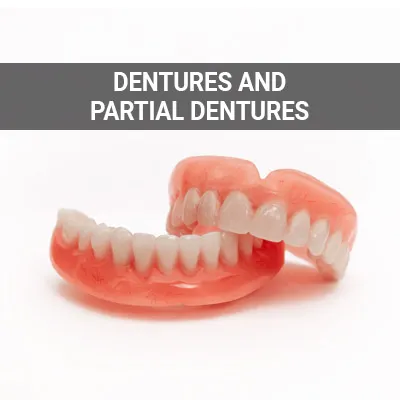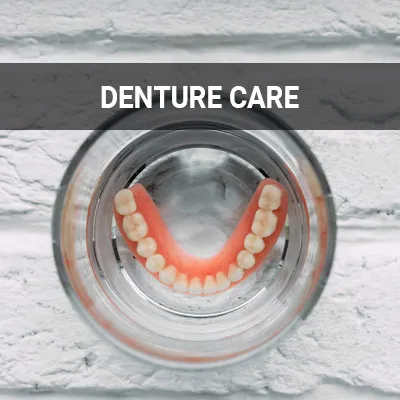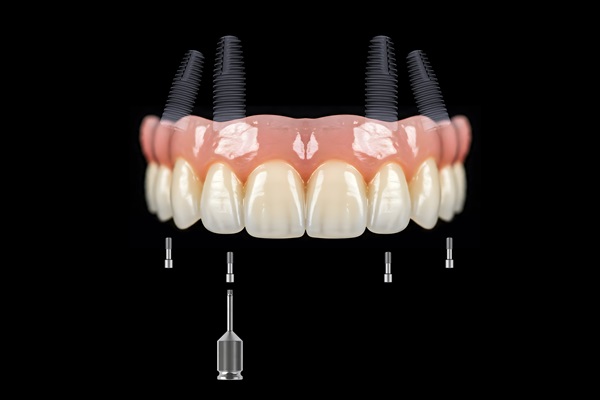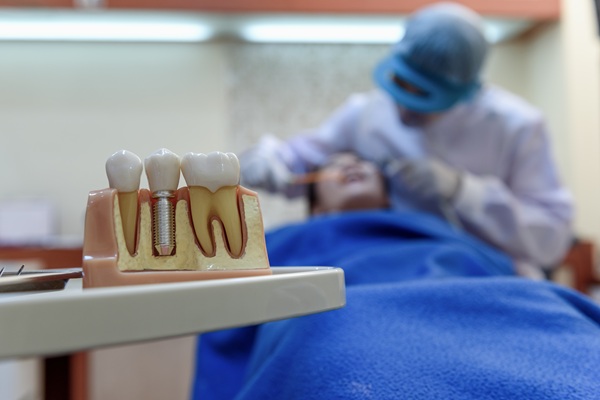Adjusting to New Dentures Modesto, CA
Adjusting to new dentures can be a challenge because the feel of these prosthetics is different from your natural teeth. However, once you get used to them, it should be a more enjoyable experience. If your dentures are new, expect a few weeks to adjust.
Getting dentures for the first time can be exciting, as a new set of teeth can restore much of the lost functionality of a person's original teeth. Those who wear dentures can find assistance with adjusting to new dentures at Great Smiles Dental in Modesto and the surrounding area. Call us at (209) 222-3636 for advice about adjusting to new dentures and modifying them for comfort.
Tips for Adjusting to New Dentures
While dentures improve the form and function of a person's smile, they feel and act differently than natural teeth. These differences can entail a learning curve as people must learn how to care for their dentures and get used to smiling, eating, speaking, and drinking while wearing dentures. It is important for people to continue wearing their dentures to help their mouth adjust. It is common for people to feel that their dentures are too loose or big at first. However, the tongue and mouth muscles will soon adjust and help keep the dentures in place.
Speaking is one of the most noticeable adjustments patients must make when adjusting to dentures. Patients may experience some difficulty speaking with them because of the changes in the way the mouth muscles move. We recommend that people practice reading out loud in front of a mirror during those first few weeks. Patients should also make sure they have the right denture adhesive and start by speaking slowly to get used to conversing with dentures.
“While dentures improve the form and function of a person’s smile, they feel and act differently than natural teeth.”
Dental Hygiene Routine Changes
When it comes to keeping your dentures and mouth clean, there are a few necessary dental hygiene routine changes. Patients must remove and clean their dentures and underneath the appliance every day. Simply soaking dentures is not enough. Patients must also brush their dentures to remove plaque and debris. However, people should never brush their dentures with toothpaste.
It is also crucial to rinse dentures after every time a patient eats. For both the dentures and the patient's health, it is also important to remove dentures each night and soak them. This period of rest is important to let the gum tissues rest and give the mouth a break. Patients should always store their dentures in water or a denture solution, so they do not dry out.
“Patients must also brush their dentures to remove plaque and debris.”
Expectations for the First 30 Days
During the 30-day adjustment period, patients should be gentle on their mouths and take their time adjusting to a new routine. New denture wearers should develop realistic expectations. While oral discomfort is normal and expected, dentures will start to feel more natural and comfortable over time. Increased salivation and sore spots on the mouth are also normal to experience during the first month of wearing new dentures.
While eating and speaking may feel foreign at first, practicing and having patience are key to the adjustment process. If there are still fit and comfort issues after a month, people should contact us for an adjustment appointment. After the first 30 days, people should be able to enjoy their everyday activities comfortably and confidently.
“During the 30-day adjustment period, patients should be gentle on their mouths and take their time with the new routine.”
Check out what others are saying about our dental services on Yelp: Adjusting to New Dentures in Modesto, CA
Adjusting Eating Practices
People with new dentures may also need to adjust their eating practices. We recommend starting with soft foods since chewing becomes more challenging when wearing dentures for the first time. People will have to learn how to chew without popping their dentures out of place, biting their tongues, or scraping their gums.
Once people are ready to move on to tougher foods, it is best to cut the food into small, bite-sized pieces that the back teeth can chew easily. Even once people get used to chewing, they should not chew with the front teeth since it can cause dentures to become unstuck in the back. It is also best to avoid sticky foods, hard items, or tough cuts of meat that may cause dentures to come loose or even damage them.
“People with new dentures may also need to adjust their eating practices.”
Questions Answered on This Page
Q. How should people adjust to their new dentures?
Q. What should new denture wearers expect during the first 30 days?
Q. How should new denture wearers change their eating practices?
Q. How should those with dentures keep their dentures and mouths clean?
People Also Ask
Q. What is the proper way to take care of my dentures?
Q. What should I do if my dentures start to feel uncomfortable?
Q. How do I know if I need denture adjustments or repairs?
Q. What are the different types of dentures?
Frequently Asked Questions
Q. Can new dentures be adjusted?
A. When you are adjusting to new dentures, you may experience discomfort when wearing them. If you see sores on your gums or tongue, the dentures may not fit correctly. Your dentist can adjust your dentures if necessary.
Q. What can I do for pain when I am adjusting to new dentures?
A. Use an oral topical gel or cream made to relieve pain. You can take over-the-counter pain relievers such as ibuprofen to reduce pain and inflammation. Take your dentures out at night and for extended periods during the day.
Q. Why do new dentures cause too much saliva?
A. When your mouth is adjusting to new dentures, there is a foreign object in your mouth. This makes your salivary glands work harder. After two weeks of wearing dentures, the saliva should decrease to more normal levels.
Q. How often should I see the dentist after getting new dentures?
A. You should make a yearly appointment with your dentist to check your dentures. This can verify fit and make sure they stay comfortable. This annual visit may include an exam to check for oral health issues, such as cancer.
Q. Can I sleep while wearing dentures?
A. Yes, you can wear your dentures at night. However, the American College of Prosthodontists recommends removing dentures while sleeping to give the gums a chance to rest from the pressure of the dentures. You should always take your dentures out every 24 hours to clean them.
Dental Terminology
Helpful Related Links
- American Dental Association (ADA). Glossary of Dental Clinical Terms. 2024
About our business, license, and website security
- Great Smiles Dental was established in 2014.
- We accept the following payment methods: American Express, Cash, Check, Discover, MasterCard, and Visa
- We serve patients from the following counties: Stanislaus County and San Joaquin County
- We serve patients from the following cities: Modesto, Oakdale, Turlock, Tracy, Stockton, Lathrop, Ripon, Atwater, Salida, Manteca and Ceres
- CA (License #33512). View License Information and Specifics
- National Provider Identifier Database (1629180617). View NPI Registry Information
- Healthgrades. View Background Information and Reviews
- Norton Safe Web. View Details
- Trend Micro Site Safety Center. View Details
Back to top of Adjusting to New Dentures










